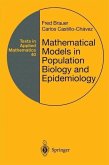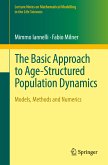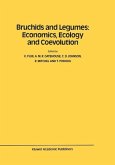Dieser Download kann aus rechtlichen Gründen nur mit Rechnungsadresse in A, B, BG, CY, CZ, D, DK, EW, E, FIN, F, GR, HR, H, IRL, I, LT, L, LR, M, NL, PL, P, R, S, SLO, SK ausgeliefert werden.
"This text aims to build a concept of models and thus show how the more complex ideas can be understood. ... This is a detailed, technical publication which would be best suited to students of theoretical ecology. ... the gradual building of the model means that a wide range of readers will gain something from the text. ... Overall, a good text for the specialist and a useful reference for those really wanting to understand the theory of modelling from the ground up." (Thermoelectric News, July, 2008)
"Berryman (Washington State Univ.) and Kindlmann (Academy of Sciences of the Czech Republic) address the general principles and theories of population ecology using simplified interpretations of general systems theory and graphical procedures. ... Summing Up: Recommended. Upper-division undergraduate through research and faculty collections." (R. L. Smith, Choice, Vol. 46 (4), December, 2008)









